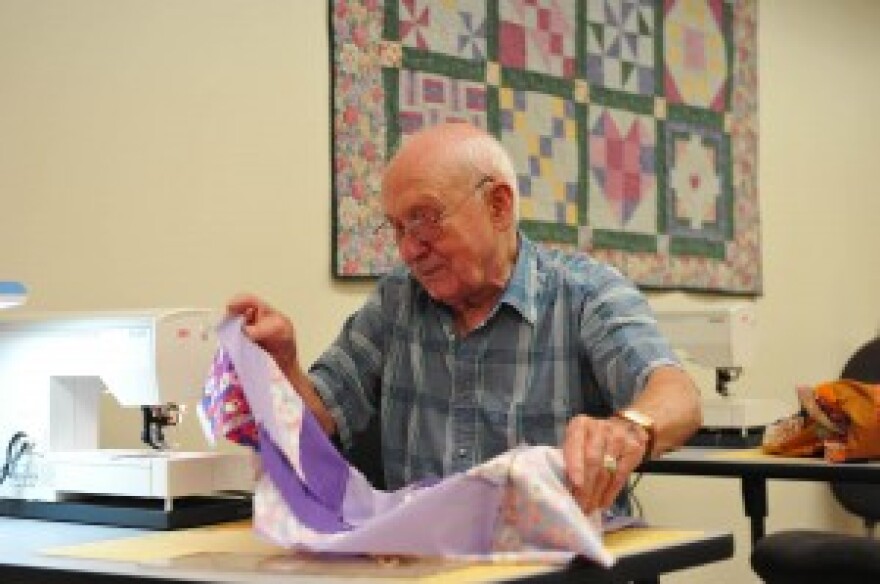You could try and improve your memory by spending hours online memorizing lists of obscure vocabulary words, but new research shows you might be better off picking up a challenging, new hobby – like digital photography or quilting.
Brain training has become a multi-million dollar industry. But can brain games really help prevent memory loss? While a number of studies show the benefits of staying mentally active, research from the University of Texas at Dallas shows learning a new skill, not playing a puzzle, might be better for keeping the brain sharp.
Can Memory Loss Be Prevented?
In the trial, led by cognitive neuroscientist Dr. Denise Park two hundred seniors were randomly assigned for three months to dedicate fifteen hours a week to digital photography, quilting, or another activity.

“Now quilting may not seem like a mentally challenging task,” Park says, “But try it! If you’re a novice you’re cutting out all these abstract shapes, it’s very demanding and complex task.”
In the study, which took place at UT Dallas’ Center for Vital Longevity, the groups who were learning new skills were compared with several control groups.
“Rather than just comparing it to people who did nothing, we compared it to a group of people who had fun but weren’t mentally challenged as much,” Park says.
That “social group” did things like watch movies, or reminisce about past vacations. Another control group worked quietly at home, listening to the radio or classical music or playing easy games and puzzles.
Park’s research, published in the journal Psychological Science showed not all activities are created equal. Only people who learned a new skill, quilting, photography, had significant brain gains.
“And we found quite an improvement in memory and we found that when we tested our participants a year later, that was maintained.”
A Brain Boost From Learning Digital Photography
The greatest improvement was for the seniors who learned digital photography and Photoshop, perhaps, Park says, because it was the most difficult.

Jimmy Wilson, 82, agreed to learn to use a computer, a camera, and Photoshop for the trial.
“That was really quite a challenge for me when I got into the photo class,” Wilson says, “Because it involved a computer and I had never even touched a computer.”
Wilson is motivated to fight dementia, in part, because he saw what the disease did to his wife towards the end of her life.
“When my wife died,” he says, “it would have been real easy to just become a total recluse.”
Instead, Wilson embraced being social and mentally active. He’s a member of the choir at his church, and when he’s not reading current events and books on his Kindle, he gets together with family for Mexican food.
Since Wilson participated in the trial, he says he’s noted improvement in his memory, which of course he says still isn’t perfect. He’s also picked up a new hobby, and plans to get an iPhone to use as a camera — although he admits it can be frustrating learning to use new technology.
“I would like to try to maintain to struggle with things a little more, he says, “I understand that’s good for the brain.”
The Brain As Orchestra
So how does learning a new skill help ward off dementia?
By strengthening the connections between parts of your brain, says Scott Barry Kaufman, a cognitive psychologist and Scientific Director of The Imagination Institute.
“It really is strengthening the connectivity between these team players of these large scale brain networks,” he says.
While brain games improve a limited aspect of short term memory, Kaufman says, challenging activities like quilting or dance strengthen entire networks in the brain.

Denise Park says to understand the importance of challenging your brain, it helps to think of the organ as an orchestra.
“Players come in and players go out,” she says, “Sometimes when something is really demanding the whole orchestra is playing, but they’re not playing harmoniously.”
The goal is to keep each individual player in best form, and make sure there’s coordination.
Improving your own coordination, through a dance class, or learning to play bridge may all be ways to maintain your memory, and have a bit of fun too.
Park plans to follow up with participants to see if the effects remain over the long term, and are seeking additional funding for a larger trial.







